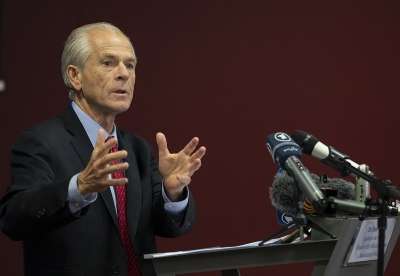
Explained: Why Peter Navarro’s claims on India buying Russian oil don’t hold up
Former White House trade adviser Peter Navarro has accused India of bankrolling Russia’s war in Ukraine by buying discounted oil. However, Indian officials and experts say his claims misrepresent how the global energy market works.
Navarro alleged in a series of posts on X that New Delhi uses dollars earned from exports to the US to purchase Russian crude, indirectly funding Moscow. He also criticized India’s tariffs and trade practices, calling them unfair to American exporters.
But government sources dismissed these arguments as “oversimplistic and incorrect.” They pointed out that Indian refiners do not use US dollars to pay for Russian oil; instead, purchases are settled via third-country traders in currencies like the UAE dirham.
Officials also stressed that India’s imports are consistent with the G7/EU price-cap mechanism, designed to prevent Russia from profiteering while keeping global oil supplies steady. “If India stopped buying Russian crude, oil could spike beyond $200 a barrel, hurting consumers worldwide,” one source said, noting that US Treasury Secretary Janet Yellen and other Western officials have previously welcomed India’s role in stabilizing prices.
India has also borne domestic costs. Public sector oil firms absorbed losses of up to ₹21,000 crore in 2022 to keep fuel affordable, while export taxes and supply rules were imposed to ensure stability for Indian consumers.
Experts add that refining crude and exporting fuels—sometimes to Europe itself—is a normal part of the global supply chain, not “laundering.”
India’s trade deficit with the US, around $50 billion, is relatively small compared to America’s deficits with China or the EU, officials noted. “Navarro’s claims ignore both facts and the spirit of international energy cooperation,” they said.